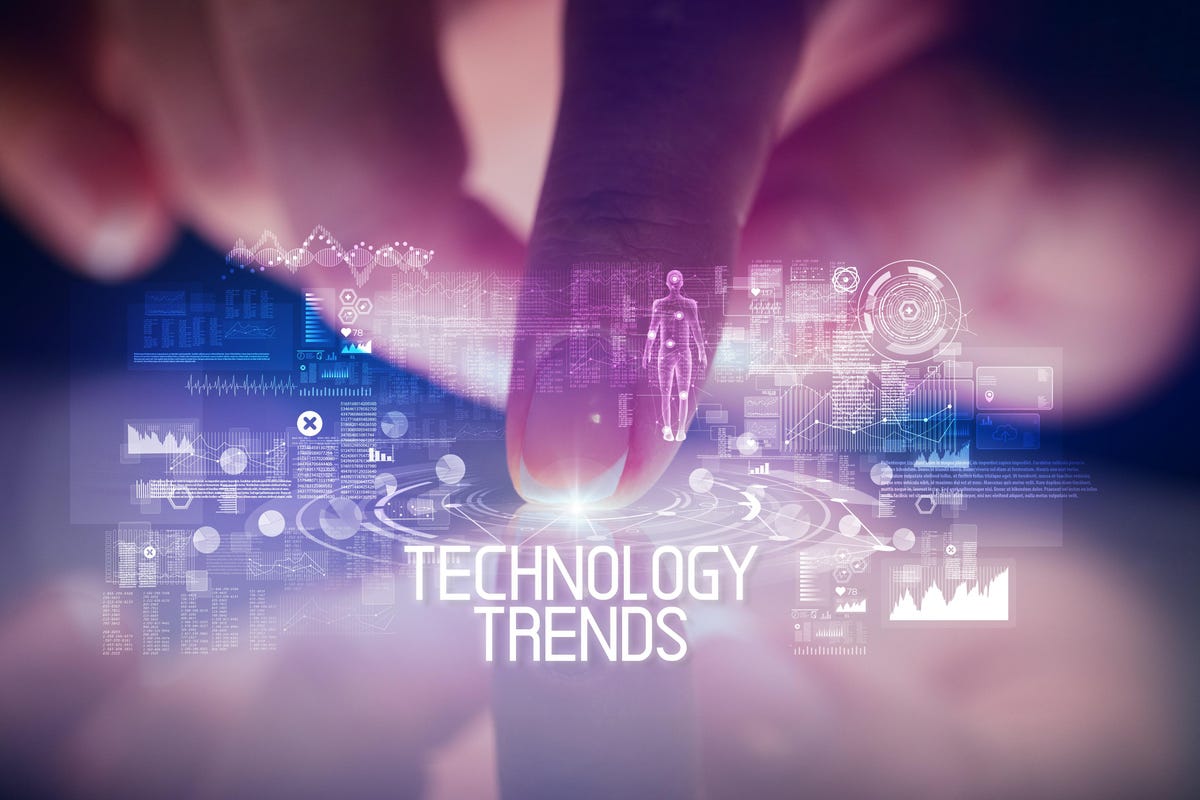Trending Technologies
Let's get acquainted with some of the trending technological advancements.

1. AI-powered cybersecurity
The steep increase in cyberattacks, email phishing scams, and ransomware is forcing cybersecurity firms to search for tech solutions to address the vulnerabilities. Criminals are hacking individuals’ accounts, countries’ critical infrastructure, and businesses of all sizes, causing millions of dollars in losses.
Workplace digitization and remote working in response to the COVID-19 virus made it a priority to retrain employees on online safety to reduce data breaches and losses.
Businesses are also adopting new cybersecurity technologies, such as artificial intelligence (AI), to monitor and guard networks against hackers in real-time rather than responding to the threat after the damage is already done. Moreover, cloud storage companies are offering end-to-end encryption for online data storage and data transfers.
2. 5G technology adoption
According to Ericsson’s Mobility Report, published by Statista Research, 5G technology subscriptions will surpass one billion this year.
While 4G brought significant improvements, for example, in streaming videos seamlessly, 5G has 100 times the speed, meaning that uploads, downloads, data transfers, and streams will be much faster.
5G will boost the Internet of Things (IoT), which involves internet-powered smart devices linking and operating together. Unlike with 4G, many devices can connect to the 5G network without a significant drop in speed, latency, and reliability. That’s because of the network-slicing feature that creates independent networks offering different services for each device.
Furthermore, while 4G mobile networks struggle with connectivity in a crowded location, 5G can transmit its radio waves to as many as one million devices per square kilometer.
3. Internet of Behaviors (IoB)
A lot of customer data is collected by service providers through IoT devices in the home. Businesses are using analytics and big data techniques to determine the data’s value in what is now known as the Internet of Behaviors (IoB).
By reviewing this customer information, businesses can personalize their services, market their products, and improve a customer’s experience with the company.
While personalized solutions are important, companies face an uphill battle convincing users to share personal data with them to develop these solutions.
Website hacking and other cybersecurity challenges also make customers uncomfortable about risking their privacy in return for valuable services. A different approach to data collection will be vital for businesses’ data analysis needs.
4. Artificial intelligence (AI) and machine learning
Artificial intelligence is one of the most consistently evolving technologies in the world. Its widespread use symbolizes its potential to provide solutions in multiple industries, from health, security, and education to logistics and information technology.
For example, navigation apps use AI to guide drivers through various locations, while machine learning technology ranks online search results and predicts what a user is searching for by offering suggestions.
Other uses for AI include automation in manufacturing, guiding self-driving cars, operating as smart online assistants such as Siri or Google.
Plus, AI is helping with airline reservations and hotel bookings. However, perhaps its most potent power is in analyzing large chunks of data and providing reports that can be used by organizations to develop strategies and solutions.
5. Metaverse
Facebook’s name change to Meta put a spotlight on the metaverse, described as the next evolution in social connectivity. The metaverse is a virtual, three-dimensional space that people can log into as avatars to socialize, work, shop, collaborate, or play games together. Companies are investing in novel technologies to bring the metaverse to life, such as virtual reality (VR) and augmented reality (AR). For example, VR headsets enable people to explore and immerse themselves in digital worlds and share experiences. Metaverse real estate sales reached $501 million last year(opens in new tab) and have already topped $85 million this year, according to MetaMetric Solutions. Thanks to blockchain technology, people can own these virtual assets or even make in-game purchases.
